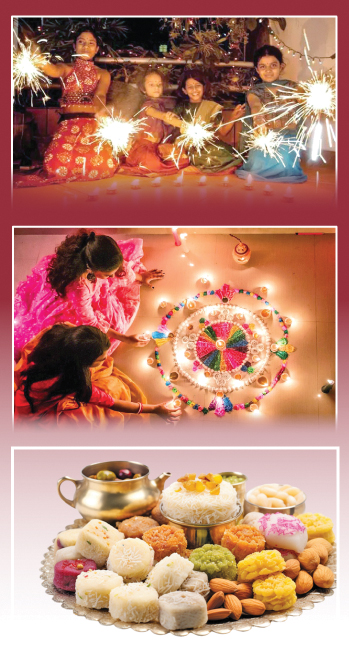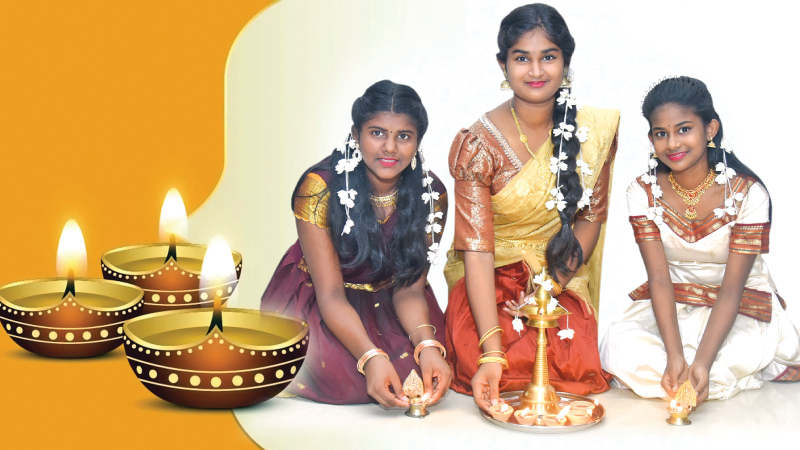Hindus have festivals to bring their families and friends together. They, celebrate these festivals to teach the people the basic values of humanity, love and care. Each festival has its own importance.
Diwali
Diwali means a row of lights. It is the most significant festival in Hinduism. Diwali means entering a light, bright area from darkness. Actually, Diwali is celebrated to mark the victory of good over evil.
It is believed that God Krishna, an avatar of Lord Vishnu killed Narakasuran who was a notorious, evil giant. After the killing of Narakasuran all the people were happy about his death. To mark this day, from that moment Hindus started to celebrate Diwali.
 This festival is celebrated not only by the Hindus but also by Sikhs, Buddhists and followers of some other religions.
This festival is celebrated not only by the Hindus but also by Sikhs, Buddhists and followers of some other religions.
Myths and cultural beliefs
Many myths and cultural beliefs are associated with celebrating this festival.
Another story about Diwali is that Goddess Lakshmi married Lord Krishna on this day. That day was a new moon day in the Tamil month of the year called Karthikai.
Another story which is associated with Diwali is that on this day after fourteen years of exile, Lord Rama along with Goddess Sita and Lakshmana returned to their kingdom, Ayothi. The people of Ayothi were happy and expressed their joy. Since then, Hindu people started to celebrate Diwali on the new moon of Karthikai according to the Hindu calendar.
Preparations
People celebrate Diwali by worshipping God Ganesha, Goddess Lakshmi and Goddess Sarasvathi. It is believed that worshipping Goddess Lakshmi brings success and prosperity. Great preparations are made for this day. People organise special poojas in the evening and after the pooja is finished they light lamps and candles to spread light everywhere.
People celebrate Diwali by getting new clothes, making sweets, giving gifts, painting their houses and buying new utensils for their use. They share the sweets with relatives, neighbours, friends and others. Children are very happy on this day. They also light fire crackers.
In some areas people organise carnivals to entertain children, women and elders. Women clean their houses and draw kolam and decorate their houses with colourful lights. In shops and workplaces people get bonuses for the festival and are encouraged to celebrate lavishly.
Diwali, the major festival of the Hindus is also considered a symbol of cleanliness. It is also considered an auspicious occasion to open new shops, enter a new house and start new businesses.
This festival is made more beautiful by different cultures or religions with different ways of celebrating. The public holiday is announced by the Government of that country.
The festival should be celebrated together with love, harmony and brotherhood. It is better to stop lighting crackers to prevent environmental pollution. In India, after the festival celebrations with the lighting of crackers they suffer severe air pollution every year.
So to celebrate this festival we can organise a tree planting campaign and educate the younger generation to stop using crackers and pay more attention to the environment. If we keep our environment clean and neat we can celebrate our festivals for many more years and preserve our planet for several generations.
Diwali is the festival of lights as people brighten up the country on this day. We worship our deities with great reverence.
Diwali teaches us great lessons of unity, peace, dignity and brotherhood. We should celebrate a peaceful, joyful and beautiful Diwali with our family and friends.
S. Kirubanandan
The writer is a teacher of English
in Valaichenai, Batticaloa









